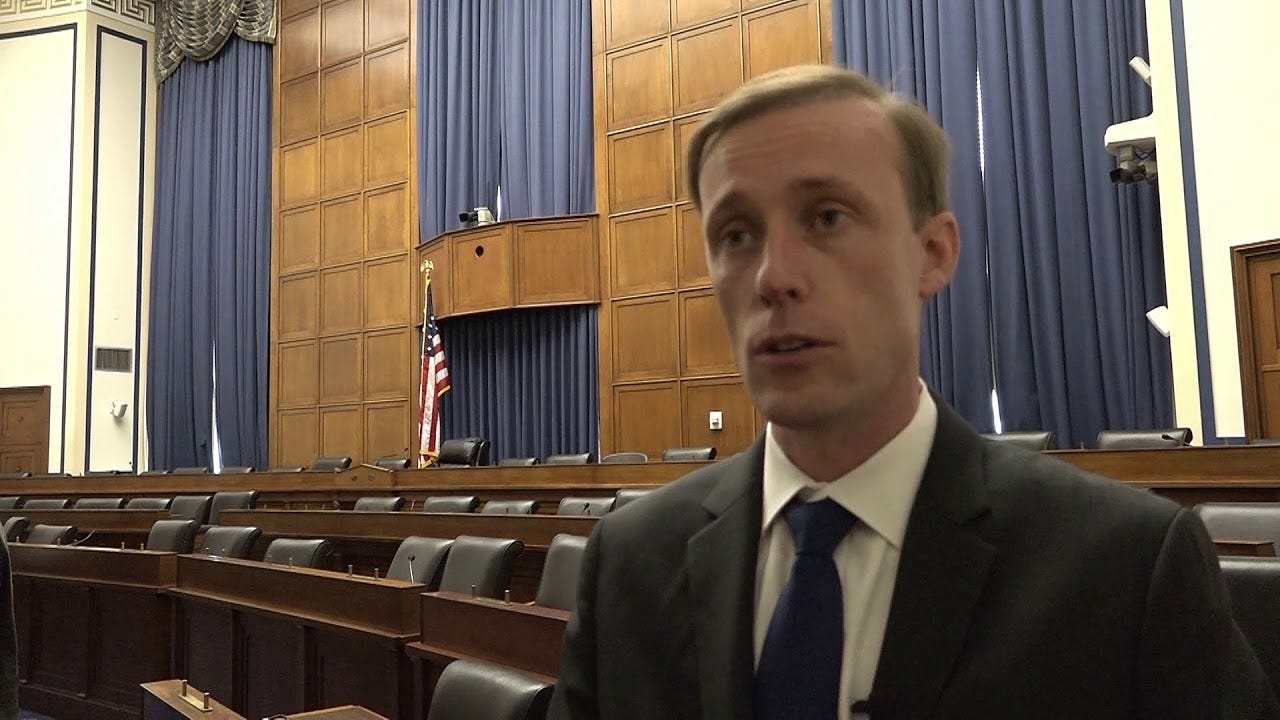Biden's National Security Advisor Jake Sullivan: Monopolies Are a National Security Problem
Jake Sullivan says competition, not national champions, secures American prosperity.
Welcome to BIG, a newsletter on the politics of monopoly power. If you’d like to sign up to receive issues over email, you can do so here.
Last week, the White House issued an executive order to increase fair competition in the economy, citing a range of industries from broadband to shipping as excessively consolidated and prone to unfair practices. I’ve written about the impact of the executive order, and what it means in a domestic context, as have many others.
But one part that wasn’t noticed was that the order explicitly touched on foreign policy, and the debate in national security circles over whether the size and power of dominant firms is an asset or liability when it comes to foreign policy.
Here’s the policy the order asserted:
This order reasserts as United States policy that the answer to the rising power of foreign monopolies and cartels is not the tolerance of domestic monopolization, but rather the promotion of competition and innovation by firms small and large, at home and worldwide.
Many, including Google ex-CEO Eric Schmidt, argue that big tech monopolists are ‘national champions’ who must be protected so that the U.S. can use them against China. Sheryl Sandberg was explicit, saying Chinese firms will dominate if the U.S. breaks up Facebook. Others, like White House advisor Tim Wu, believe the opposite. Wu’s argument is that the U.S. in the 1970s brought antitrust cases against its most powerful firms - IBM and AT&T, while Japan and Europe nurtured their technology firms, protecting them from competition. And it was the American model that ended up super-charging Silicon Valley, while Japan and Europe went into stagnation.
Where does the Biden administration sit in this debate? A few days after Biden signed the executive order, White House National Security advisor Jake Sullivan gave a savvy speech at the National Security Commission on Artificial Intelligence, essentially on the challenge of authoritarian economics coming from China. Sullivan was outlining how America should respond to the Chinese challenge, and in doing so, he emphasized the importance of competition, and the executive order, as part of their geopolitical approach.
From a national security perspective, America needs vibrant competition and innovation and this Executive Order and the thrust behind it will help bring that about. This means greater scrutiny of mergers, rules on surveillance and accumulation of data, and a fair shake for America’s small businesses. Because America’s technology leadership was—and again has to be—built on competition, not on concentration.
That’s a big deal. For years, there’s been an open question about whether national security concerns will trump competition concerns, under the assumption that bigness might be problematic in all sorts of ways, but it is essential in shielding us from foreign perfidy. Of course anti-monopolists, like the New Dealers who built the arsenal of democracy prior to World War II, I never bought into that framework. And neither, apparently, does Jake Sullivan.



Even if consolidation/monopolies *might* be beneficial for national security reasons, it would only apply for certain industries/companies, with semiconductors/Intel being a prime example. And it's clear now how their dominance for years has not only *not* resulted in an improved national security position, but in fact quite the opposite, with them falling behind and scrambling to catch back up, and all the security vulnerabilities being found, one after another, in their processors.
And I fail to see how there's any potential advantage to companies like Amazon and Facebook having dominance. How is it helpful to national security to make a few companies, and specifically a handful of people within those companies, massively rich, especially considering they do all they can to pay as little taxes as possible? Sorry, but the idea of consolidation strengthening national security by providing giant corporations with the power to stand against those in other countries, even if it has its merits (which, again, it rarely, if ever, does) has been disproven by those very same corporations that argue the point. Maybe if they wanted their argument to be taken seriously, they shouldn't have spent the last few decades doing just about everything they can to show the opposite out of greed.